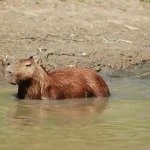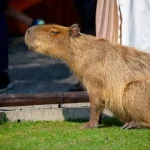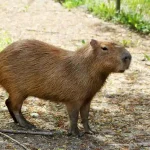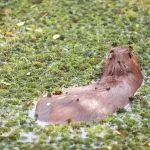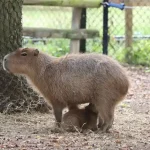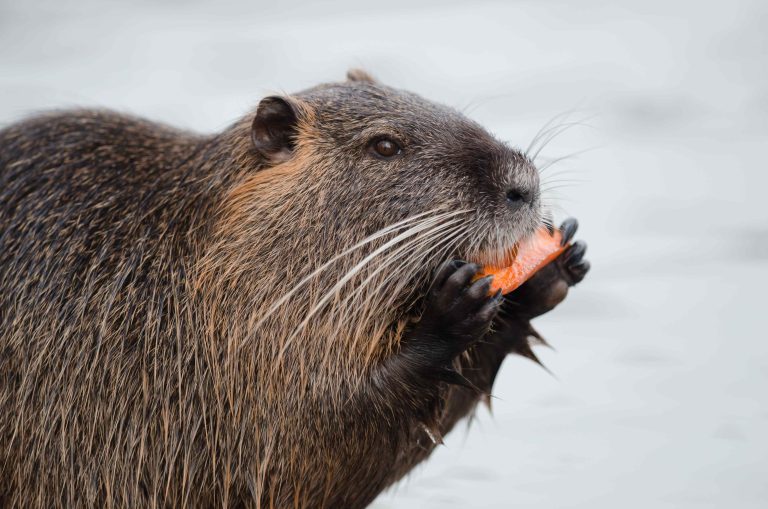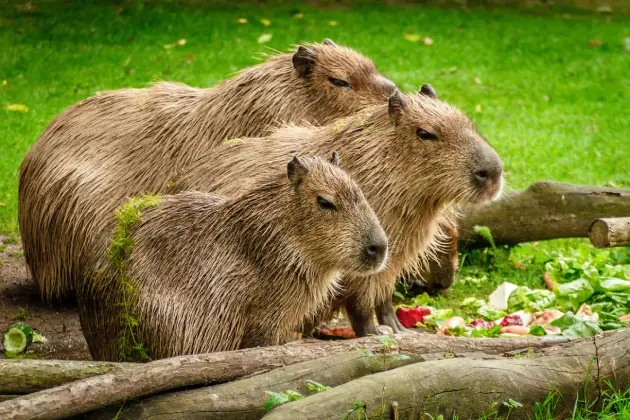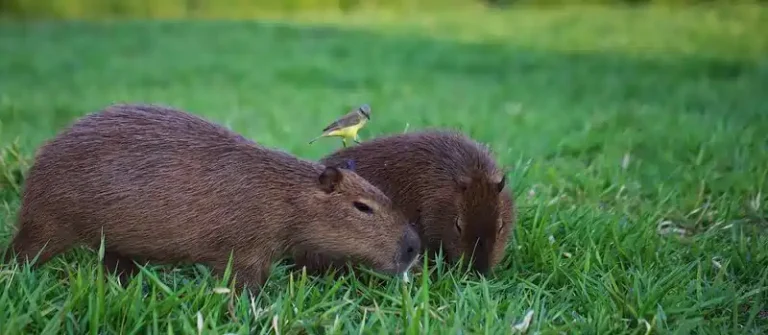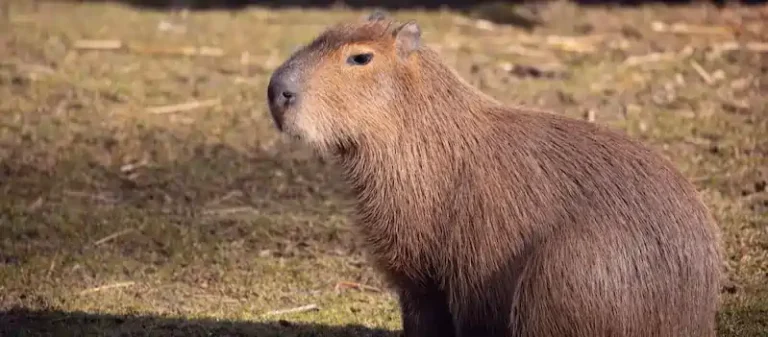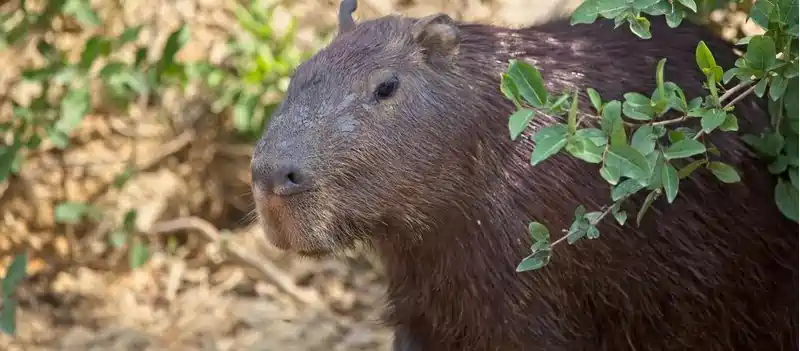
Capybaras are fascinating animals, often seen in viral videos, relaxing by the water or interacting with other animals. Known for their calm and social nature, capybaras have become popular as exotic pets. If you live in North Carolina, you may wonder if it’s possible to own a capybara legally. In this article, we will explore the regulations surrounding capybara ownership in North Carolina, what you need to know before owning one, and the responsibilities involved in caring for these gentle creatures.
What Is a Capybara?
Before diving into the details of owning a capybara in North Carolina, it’s important to understand what makes these animals so special. Capybaras are the largest rodents in the world. They can grow up to four feet in length and weigh as much as 140 pounds. Native to South America, capybaras live in groups near rivers and wetlands. These semi-aquatic animals are herbivores and enjoy spending much of their time in the water.
Capybaras are gentle, friendly, and social animals. They thrive in groups, making them an ideal pet for those who can offer them companionship, whether it’s with other capybaras or humans. Due to their calm nature and intelligence, capybaras are often seen as affectionate pets that can form close bonds with their owners. However, owning one requires a commitment to meet their unique needs, including proper housing, diet, and socialization.
Can You Own a Capybara in North Carolina?
So, can you own a capybara in North Carolina? The answer is yes, you can own a capybara in North Carolina, but it comes with certain requirements and regulations. Unlike some other states, North Carolina does not outright ban the ownership of capybaras. However, there are still rules you need to follow.
Regulations for Owning a Capybara in North Carolina
North Carolina allows the ownership of exotic animals, including capybaras, but they fall under the category of regulated animals. To legally own a capybara in North Carolina, you may need to apply for a permit or meet specific conditions related to the care and housing of the animal. The state requires exotic pet owners to follow regulations that ensure the animals are kept in safe and suitable environments.
For example, while there is no statewide ban on capybaras, they might be subject to regulations related to wildlife conservation or public health. It’s essential to check with local authorities and the North Carolina Department of Agriculture to understand the specific permits or licenses required to own a capybara in your area.
At Capybara Pet Info, we always recommend researching local ordinances in your city or county before bringing a capybara into your home. Some local areas might have additional restrictions or requirements that need to be met.
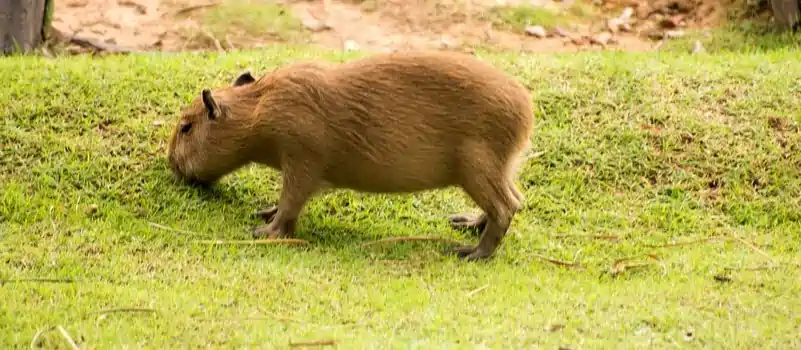
The Process of Obtaining a Permit
If you are required to obtain a permit to own a capybara, the process is generally straightforward but does require attention to detail. In North Carolina, permits are often issued by the Department of Agriculture or local animal control agencies. The process may involve submitting an application, paying a fee, and providing details on how you plan to care for the capybara, including its living conditions, diet, and space requirements.
Once you have obtained a permit, it is important to keep it updated. Permits are often valid for a specific period, and you may be required to renew them periodically. Additionally, it’s essential to follow all local regulations and guidelines related to animal welfare and safety to ensure that your capybara remains healthy and well-cared for.
What You Need to Know Before Owning a Capybara
Owning a capybara is not like owning a typical household pet. These animals have unique needs and require special care. If you are considering adopting a capybara in North Carolina, here are some things you need to know.
Space Requirements
Capybaras are large animals, and they need a lot of space to roam and explore. They cannot be confined to small enclosures. Ideally, you should have a large, securely fenced outdoor area where the capybara can run and graze. Capybaras are semi-aquatic animals, which means they also need access to water for swimming and cooling off. This could be a pond, a pool, or even a large kiddie pool.
In addition to outdoor space, capybaras need a safe, sheltered area to rest and sleep, away from extreme temperatures or potential predators. The enclosure must be secure to prevent the capybara from escaping, as they are curious animals that love to explore.
Companionship
Capybaras are highly social animals and thrive in the company of others. It is important to have at least two capybaras if possible, as they form strong bonds with each other. If you only plan to keep one capybara, you must be prepared to spend a significant amount of time interacting with it. Capybaras can become lonely and stressed if left alone for long periods, which can lead to behavioral problems.
If you don’t plan to adopt multiple capybaras, you must be ready to provide the attention and companionship they need. Regular interaction with their human owners can help meet these social needs.
Diet and Health Care
Capybaras are herbivores, meaning they eat a diet that consists mostly of grasses, hay, vegetables, and fruits. You will need to provide fresh, healthy food every day to ensure your capybara stays strong and healthy. They also require access to clean, fresh water at all times, both for drinking and swimming.
In addition to a proper diet, capybaras need regular health check-ups with a veterinarian experienced in exotic animal care. Capybaras are susceptible to specific health issues, such as dental problems or skin infections, which require attention from a qualified vet. Ensuring that your capybara receives proper veterinary care is essential for maintaining its health and well-being.
Behavioral Considerations
Capybaras are gentle, calm, and affectionate animals. However, they require socialization and proper training to ensure they are well-behaved. They can become shy or fearful if not handled correctly, so it is essential to introduce them to their new environment gradually and gently.
Capybaras can also make a variety of sounds, from soft whistles to more vocal expressions, and they use these sounds to communicate with other animals or their owners. Being aware of your capybara’s behavior and understanding its needs is essential for building a strong bond and ensuring a happy, healthy pet.
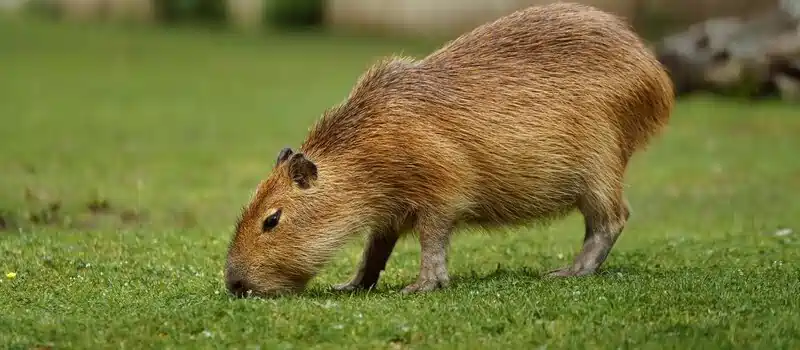
Alternatives to Owning a Capybara in North Carolina
If you are disappointed to learn that you cannot own a capybara in your area, or if the legal and care requirements seem too challenging, there are still options for experiencing these fascinating animals.
Visiting Wildlife Sanctuaries
While you may not be able to own a capybara in North Carolina, you can visit wildlife sanctuaries or animal rescues that house capybaras. These sanctuaries often provide a safe and comfortable environment for capybaras and other exotic animals. Visiting these sanctuaries can give you a chance to interact with capybaras and learn more about their care without taking on the full responsibility of ownership.
Consider Other Exotic Pets
If you’re passionate about exotic pets but can’t own a capybara, there are other animals you may be interested in. For example, guinea pigs, which are much smaller and easier to care for, share many behavioral traits with capybaras, including their social nature. Reptiles, birds, and small mammals may also be options for those interested in owning an exotic pet.
Conclusion
In North Carolina, it is possible to own a capybara as a pet, but it comes with specific regulations. While the state does not outright ban capybara ownership, it is important to follow the required steps to ensure you are complying with the law. You may need a permit to own a capybara and must provide the appropriate environment, care, and attention. At Capybara Pet Info, we recommend that anyone considering a capybara as a pet fully understand their needs and the legalities involved before making a decision. Owning a capybara is a significant commitment, and it’s important to ensure that you can provide the right environment for these unique animals.
FAQs
1. Can I own a capybara in North Carolina?
Yes, you can own a capybara in North Carolina, but you may need to obtain a permit and meet specific requirements.
2. Do I need a permit to own a capybara in North Carolina?
You may need to apply for a permit to own a capybara, depending on local regulations. Always check with your local authorities.
3. How much space do capybaras need?
Capybaras need a large outdoor area to roam and access to water for swimming. They cannot be kept in small enclosures.
4. What do capybaras eat?
Capybaras are herbivores and eat grasses, vegetables, and fruits. Fresh water should always be available.
5. Can I keep a single capybara as a pet?
While capybaras are social animals and should ideally be kept in pairs, a single capybara can be kept if you can dedicate plenty of time for companionship.

